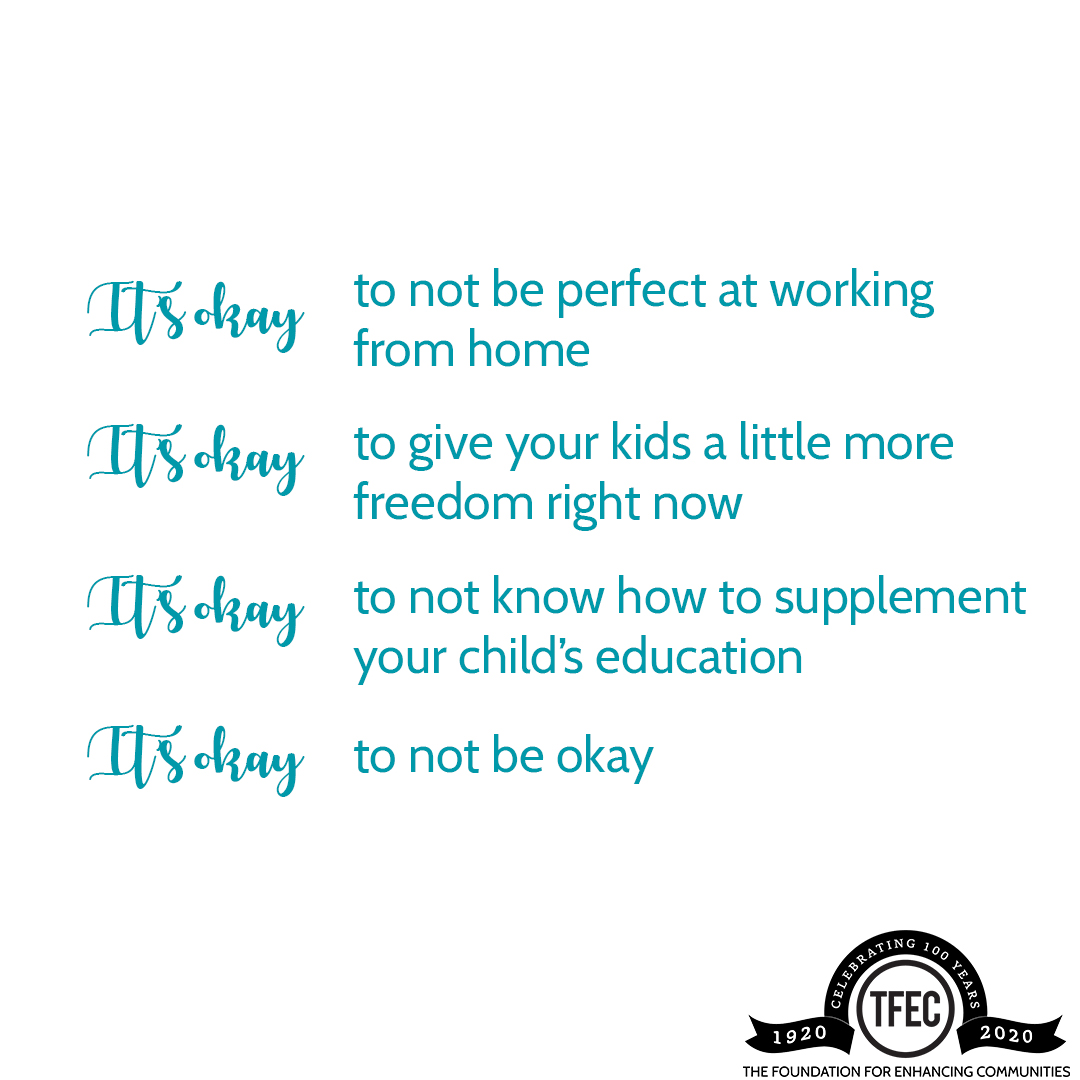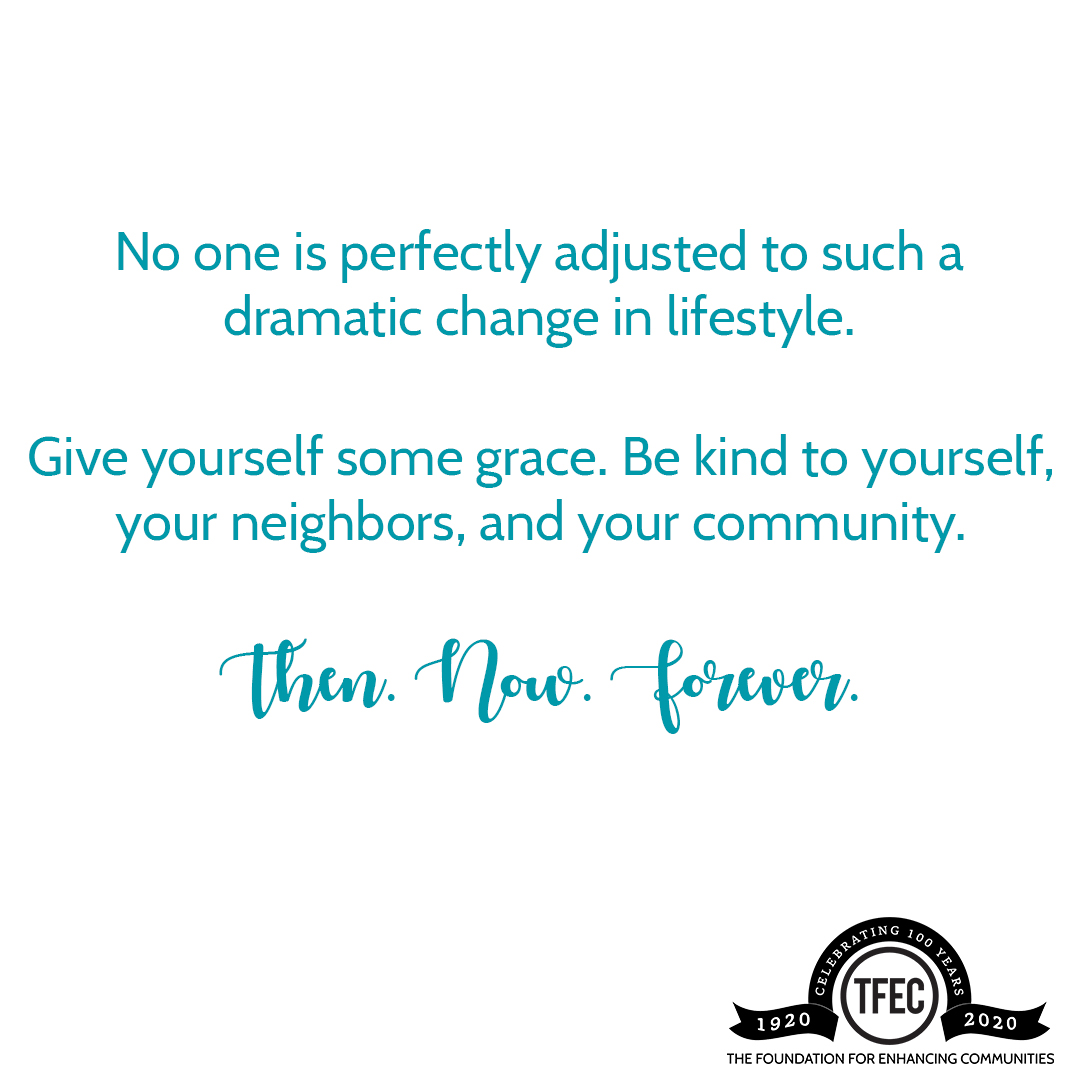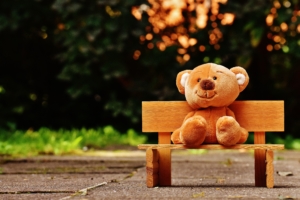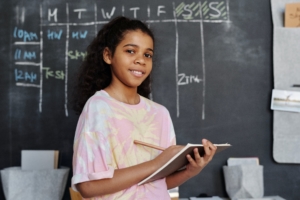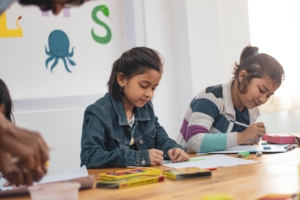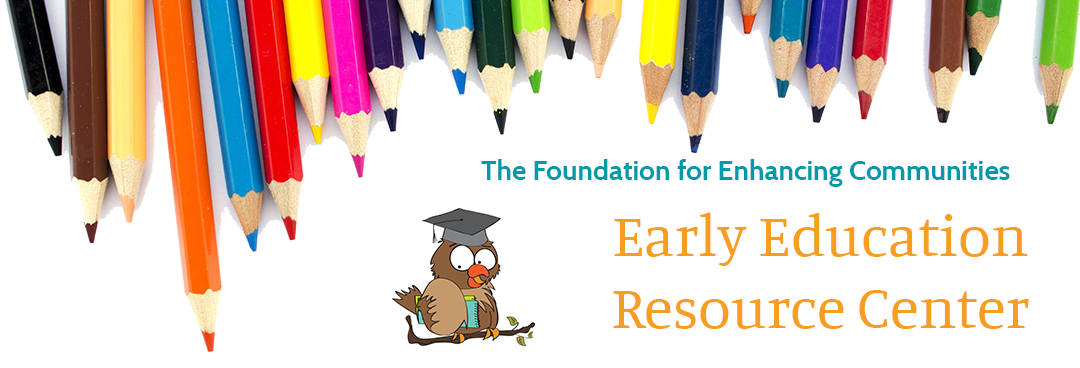
Hear from the Experts!
What will reopening childcare centers look like in a post-COVID-19 world?
Check out the latest edition of a Town Hall meeting with some of the region’s early education providers! Answering more of your questions about what reopening childcare facilities will look like in a post COVID-19 world.
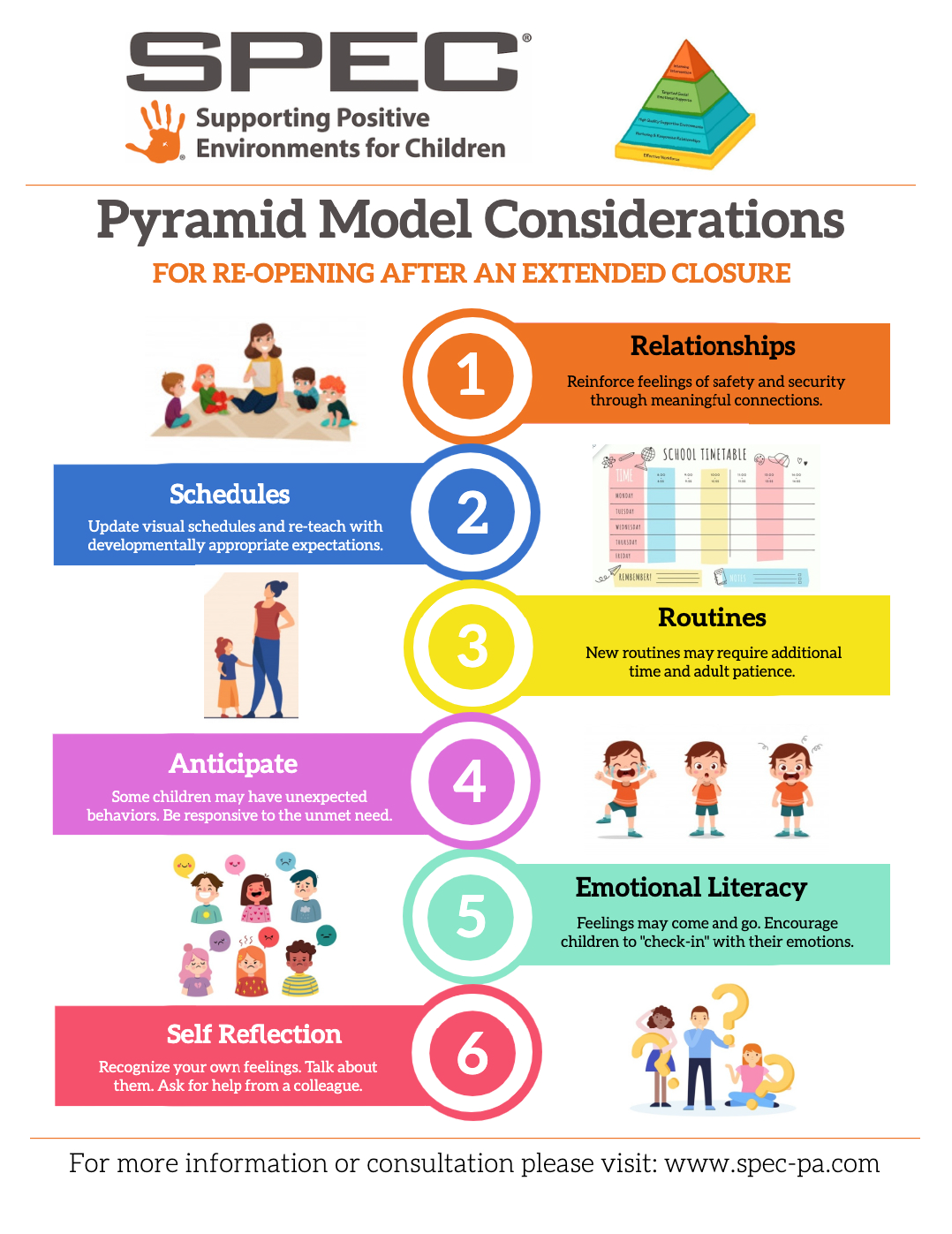
Let's Talk About It
Are you curious about how to talk to your kids about masks? Is it Halloween? Why is everybody wearing masks? Why can’t I go to the grocery store without one? How do masks stop the spread of germs?
In her book Masks by Andi Wyatt from the Sonshine Learning Center, she explains, in a kid-friendly manner, why we’re all wearing masks so that we can stay safe and healthy!
You can view a copy of her book HERE!
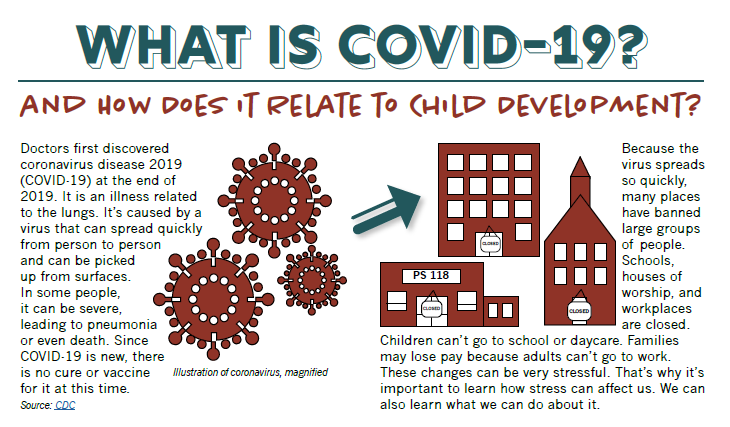
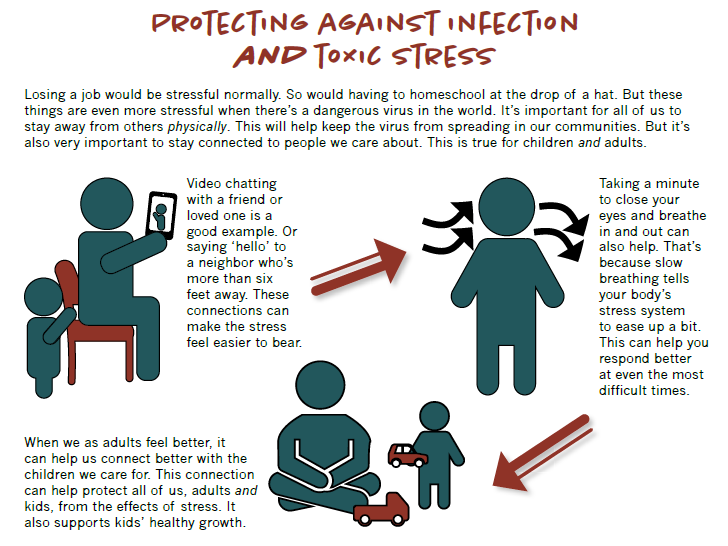
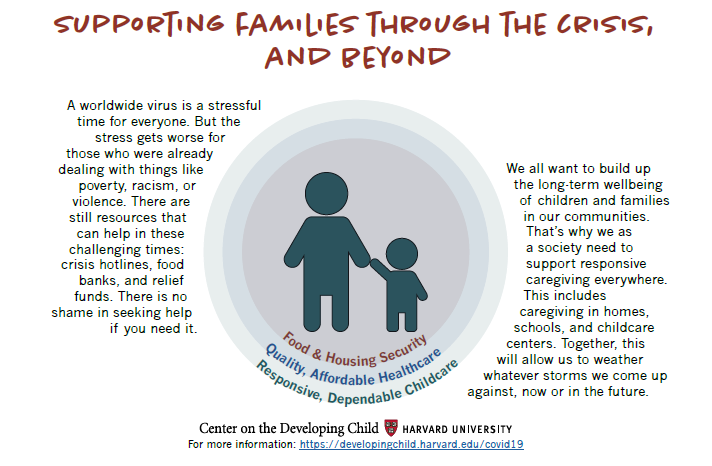
Let’s talk about the Coronavirus.
To view the full blog post and learn more about how to talk to your kids about Coronavirus visit:
Let’s wash our hands with Elmo!
Handwashing is an extremely important component of keeping you and your family safe and healthy. Let’s all wash our hands with Elmo and his friends from Sesame Street!
- Simplify: Relax your homeschooling and productivity standards to a level appropriate for a worldwide pandemic.
- Structure: Keep calm and structure on
- Support: Get ahead of the meltdowns (and teach critical social-emotional skills, too!)
In a time of video conferencing, social distancing, and quarantines, you may not know how to express what you’re feeling. Here’s why it’s important to acknowledge the grief you may be feeling, how to manage it, and how you can find meaning in it.
Disasters and traumatic events can bring along a wave of emotions including stress, anxiety, grief, and worry. Self-care is a huge factor in your long-term healing and taking care of your emotional health will ensure that you can be present to take care of your family. HERE are some tips to help you cope with a traumatic event or disaster.
The grief over canceled milestones is real. Here’s how you can cope.
ACEs. Adverse Childhood Experiences. When your and your children’s routines are thrown off by quarantines and social distancing, it can present it’s own set of challenges. However, you are not powerless in the face of those challenges. Here’s how you can help avoid ACEs during the COVID-19 cornoavirus pandemic.
In the midst of social distancing and self-quarantine, Be Strong Families has an excellent opportunity to move into a new way of training! Started March 23rd, we have been offering Living the Protective Factors during COVID-19, Fast Track Workshops, and Parent Cafés online using Zoom.
Let’s talk about vitality.
To view a list of upcoming webinars from Be Strong Families click the link below!
Mindfulness
Mindfullness builds resilience. We are all faced with extra time on our hands and faced with uncertainty. Why not use that time to develop some skills that help us pay attention to our thoughts feelings and surroundings as they occur. This is mindfullness in its simplest form. Here are three principles to keep in mind:

Deliberate Preparedness
We need to be careful, not panic. Be careful with your hygiene, health, and avoid non-essential contact.
Togetherness
One lesson that is central to mindfullness is compassion. Taking care of yourself is taking care of another. We are not alone.
Be Kind To Yourself
Taking care of your mental health right now is essential. What can you do?
- Limit your exposure
- Practice careful hygiene
- Be prepared with food, water, and medicine
- Boost your immunity and manage your anxiety with meditation. Visit www.mindful.org for free mindfulness resourses and guided meditations
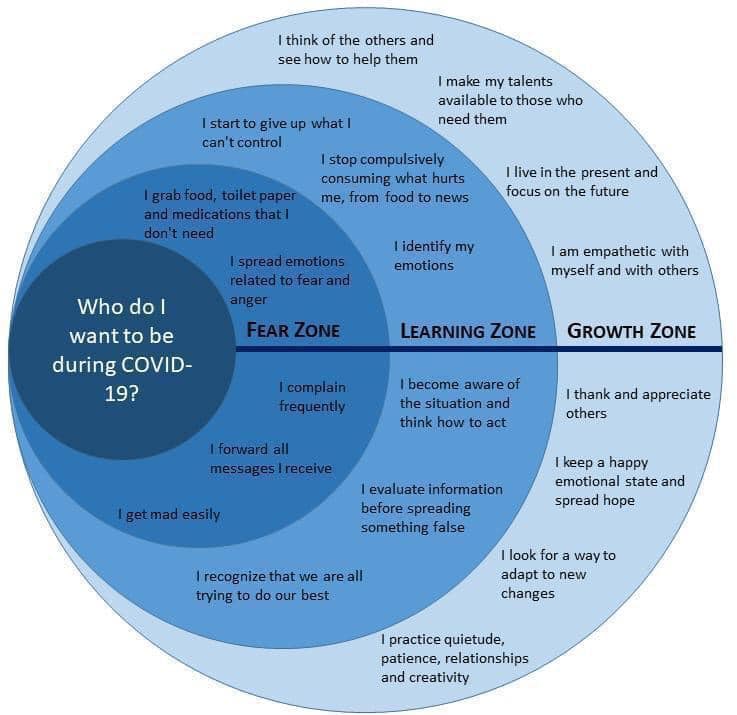
What do YOU want to be during COVID-19?
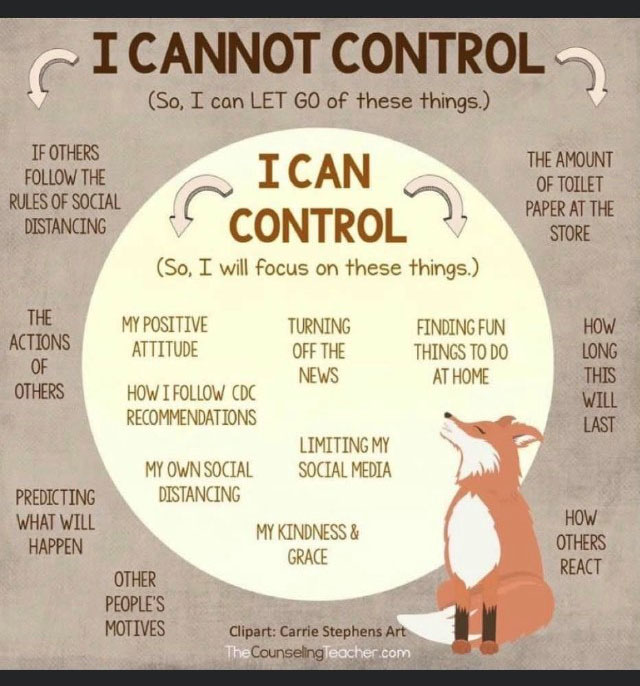
What can you control during
COVID-19?
This photo was sent in to Riverside Trauma Center from Vicky Sherwood from Emmaus Family Shelter who found this graphic from thecounselingteacher.com. You can learn more about Riverside Trauma Center by visiting their Facebook page by clicking HERE. Or their website by clicking HERE.
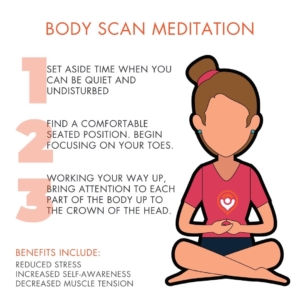
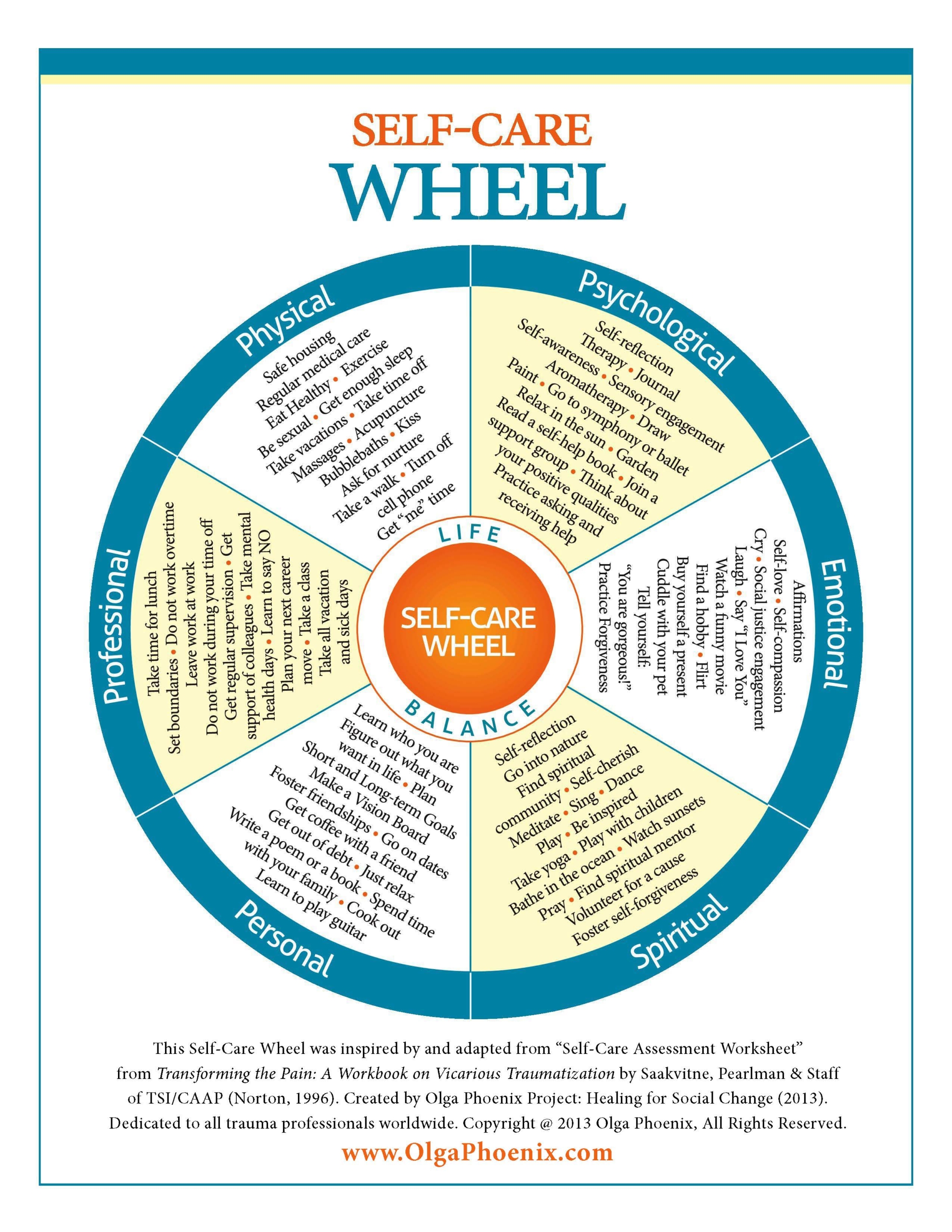
The Self-Care Wheel is an empowering and positive tool for helping professionals to manage stress, increase contentment, and life satisfaction. With over 80 self-care exercises and healing modalities included, the Self-Care Wheel is a great beginning for your own personal and sustainable Self-Care plan. Visit www.olgaphoenix.com for more info.
Learn From Home
Are you a child care provider wondering how to plan for reopen while still facing COVID-19? OCDEL is providing support for providers in counties that will transition to the yellow phase and outlines expectations for this phased reopening. Resources are available at: https://www.pakeys.org/reopen-guidance-for-child-care-providers-during-covid-19/
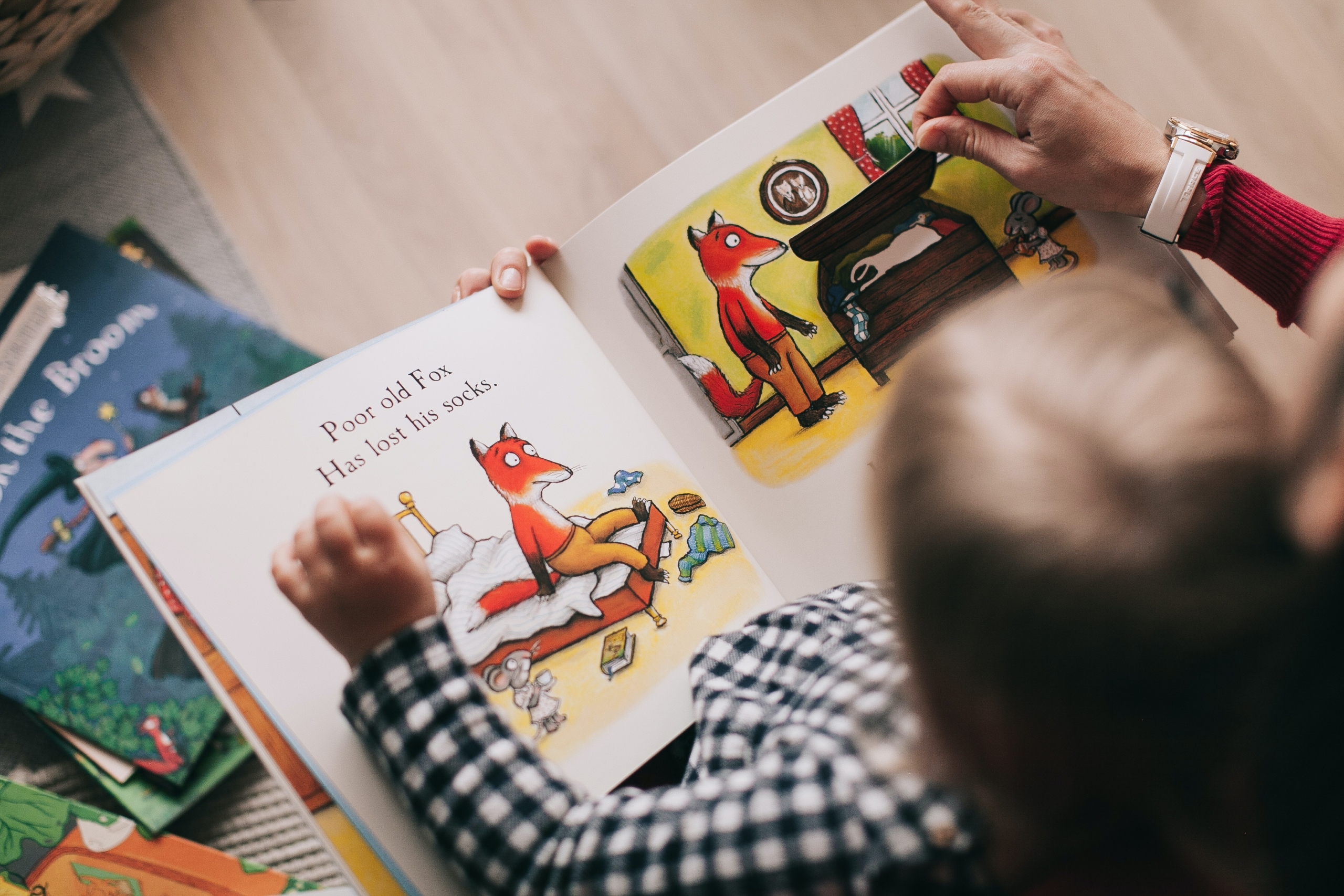
National Center for Pyramid Model Innovations
The National Center for Pyramid Model Innovations (NCPMI) is funded by the Office of Special Education Programs to improve and support the capacity of state systems and local programs to implement an early childhood multi-tiered system of support to improve the social, emotional, and behavioral outcomes of young children with, and at risk for, developmental disabilities or delays. The goals of the Center are to assist states and programs in their implementation of sustainable systems for the implementation of the Pyramid Model for Supporting Social Emotional Competence in Infants and Young Children (Pyramid Model) within early intervention and early education programs with a focus on promoting the social, emotional, and behavioral outcomes of young children birth to five, reducing the use of inappropriate discipline practices, promoting family engagement, using data for decision-making, integrating early childhood and infant mental health consultation and fostering inclusion.
NCPMI envisions a world where all young children will have a positive future through the promotion of their social-emotional competence in equitable and inclusive environments.
You can learn more about NCPMI by visiting https://challengingbehavior.cbcs.usf.edu/index.html
Response Strategy – Provide a Verbal Reminder
Response Strategy – Avoid Attending to the Behavior
Prevent Strategy – Provide Transition Warnings
Prevent Strategy – Provide Descriptive Feedback
Prevent Strategy – Provide Frequent Positive Attention
Prevent Strategy – Setting Clear Behavior Expectations
*All resources are from the National Center for Pyramid Model Innovations’ Facebook page. Visit https://www.facebook.com/PyramidModel/ for more information*
Try some of these activities to keep your child engaged in their education!
Use this checklist to ensure your child is ready for Kindergarten this fall!
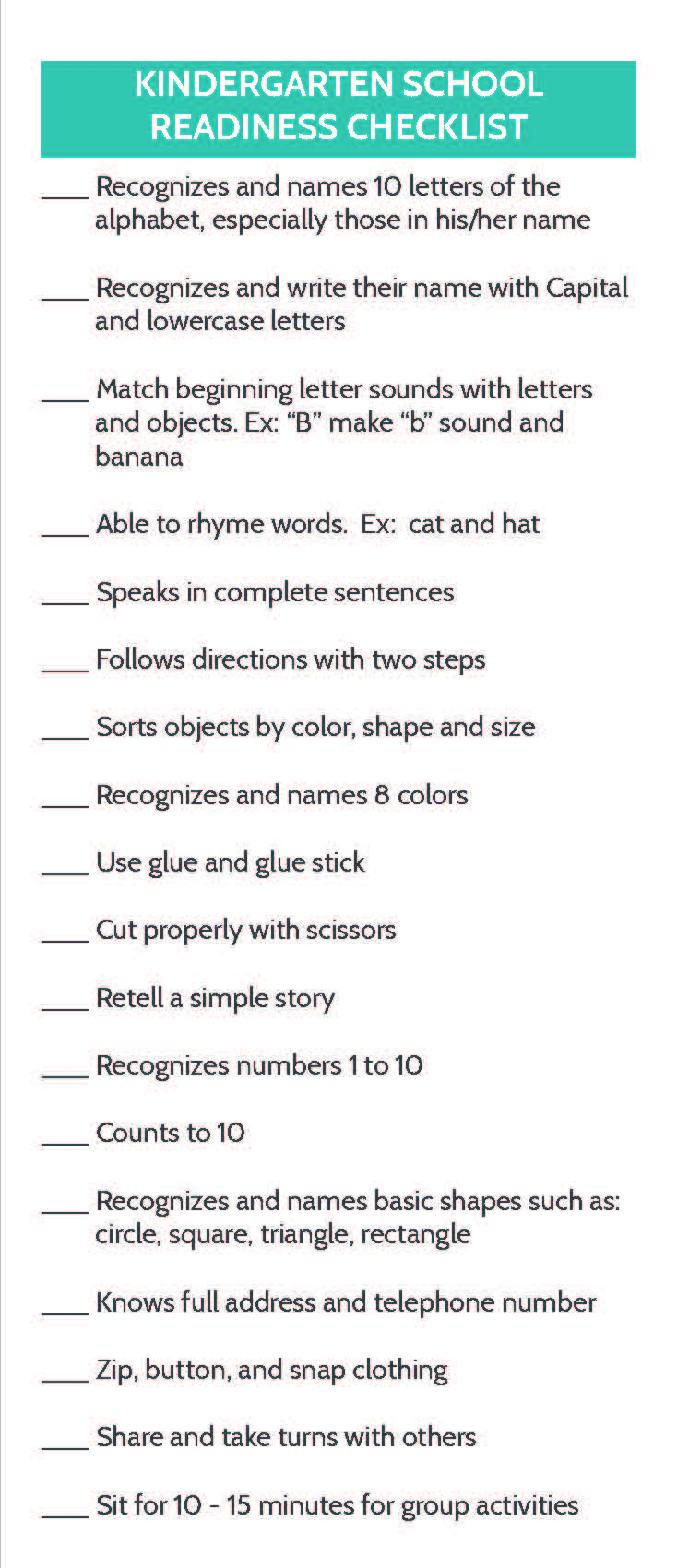
School Readiness Tip Sheets
It is never too early to start providing experiences that will help young children enter school ready to succeed. “School readiness” refers to not only academic knowledge, but also independence, communication, and the social skills needed in order to do well in school. This toolkit provides a comprehensive, flexible, easy-to-use set of resources to enhance the transition to kindergarten for all children. All activities are aligned with the Pennsylvania Learning Standards for Early Childhood.
Is your child non-verbal or having trouble finding the words to express strong emotions? The app Trigger Stop: Sensory and Emotional Check-In (availabe in both the App Store and Google Play Store) can help your child communicate what they are feeling, even if they can’t verbally explain their emotions. You can learn more about Trigger Stop and download the app to your smartphone by clicking HERE.
Trauma Informed Community
Trauma is a widespread, harmful, and costly public health problem. Trauma can include homelessness and transience, unemployment, disaster, war, poverty, substance abuse, domestic violence, and abuse and neglect. Traumatic exposure cuts across age groups, gender identity, socioeconomic status, race, ethnicity, geography, and sexual orientation. Becoming “trauma informed” means recognizing that people often have many different types of trauma in their lives. A trauma informed community involves understanding, recognizing, and responding to the effects of all types of trauma. The resources listed below focus on trauma informed and resilience-building practices.
Resilience. The ability to recover quickly from difficulties; toughness. Something we could all use a little more of right now. It can be hard to be resilient after tough times but there is a way out, a way to bounce back. Researchers have identified 4 “protective factors,” activities that provide them with the conditions that help the emergence of their resilience. Let’s explore the idea of resiliency together!
To learn more about Resiliency in Action visit https://www.resiliency.com/free-articles-resources/hard-wired-to-bounce-back/.
Communicate “The Resiliency Attitude”
“You have what it takes to get through this!” The challenge with the resiliency attitude is to both be aware of the problems and to draw upon the strengths a person has to solve them as well as to sincerely communicate the belief that the current problems can be successfully overcome.
Adopt a “Strengths Perspective”
Instead of focusing on your weaknesses, focus on what you are strongest at! Acknowledge all that you’ve been through to get here and how you can use your strengths to overcome any current obstacles you may be facing.
Surround Each Individual (or family member) with all Aspects of the “Resiliency Wheel”
The Resiliency wheel is made up of 6 components that can help individuals overcome adversity:
Provide care and support
Set high, but realistic, expectations for success
Provide opportunities for “meaningful contribution” to others
Increase positive bonds and connections
Set and maintain clear boundaries
Develop needed life skills
Give it Time
A resilient outcome requires patience. Identifying, celebrating, reinforcing, and nurturing the growth of these positive human traits is the most important skill we can collectively develop to help ourselves and others be more resilient.
Parents/Caregivers
Understanding Childhood Trauma
Talking About Trauma in Public
Through Our Eyes (video): https://www.ovc.gov/pubs/ThroughOurEyes/
First Impressions – Exposure to Violence and a Child’s Developing Brain (video): https://www.youtube.com/watch?v=brVOYtNMmKk
Toxic Stress (video): https://developingchild.harvard.edu/science/key-concepts/toxic-stress/
Early Childhood Immigration and Trauma, Build Initiative (video): http://bit.ly/toolkittrauma
Providers/Teachers
Understanding Childhood Trauma
Talking About Trauma in Public
Through Our Eyes (video): https://www.ovc.gov/pubs/ThroughOurEyes/
First Impressions – Exposure to Violence and a Child’s Developing Brain (video): https://www.youtube.com/watch?v=brVOYtNMmKk
Toxic Stress (video): https://developingchild.harvard.edu/science/key-concepts/toxic-stress/
Early Childhood Immigration and Trauma, Build Initiative (video): http://bit.ly/toolkittrauma
Community Members
Case Statement for Trauma Informed Approaches
Guidelines and Standards of Practice for Trauma Informed Communities
Organizational Change Manual – University of Buffalo
Trauma Informed Organizational Assessments
Talking About Trauma in Public
Children and Trauma for Mental Health Professionals
Trauma Informed Practices in Schools
Effects of Trauma on Urban Children
Coping with Emotional and Psychological Trauma
Effects of Trauma on Children and Adolescents
Understanding Childhood Trauma
Trauma Resources Institute: https://www.traumaresourceinstitute.com/home
Through Our Eyes (video): https://www.ovc.gov/pubs/ThroughOurEyes/
First Impressions – Exposure to Violence and a Child’s Developing Brain (video): https://www.youtube.com/watch?v=brVOYtNMmKk
Toxic Stress (video): https://developingchild.harvard.edu/science/key-concepts/toxic-stress/
Early Childhood Immigration and Trauma, Build Initiative (video): http://bit.ly/toolkittrauma
